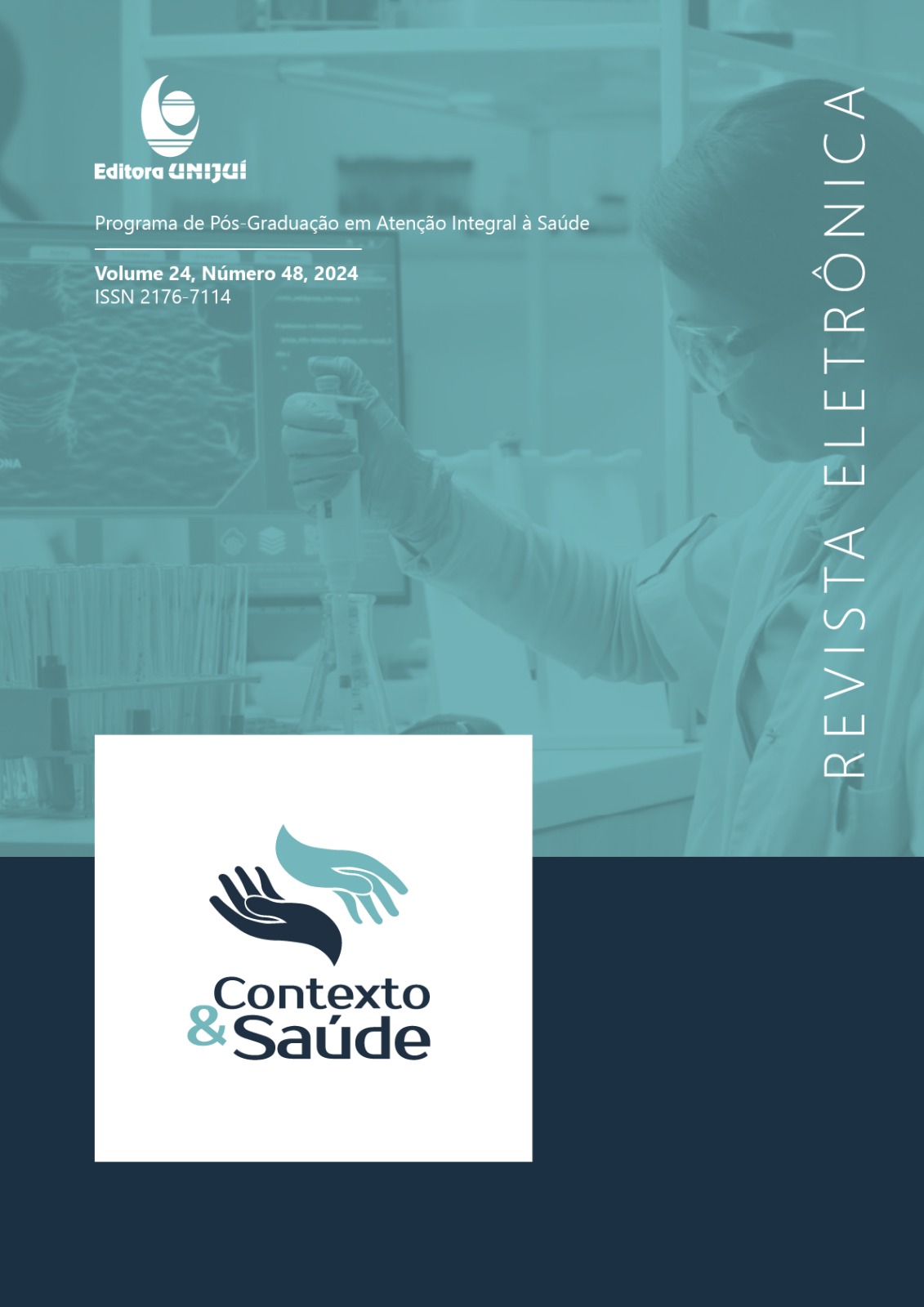Comparative analysis of the protein content and nutritional label of whey protein, plant-based, and animal proteins supplements
DOI:
https://doi.org/10.21527/2176-7114.2024.48.14497Keywords:
Dietary supplements, Food analysis, Food labelingAbstract
The consumption of protein supplements is increasingly part of the everyday life of adults in general and is associated with a healthier lifestyle. However, a constant lack of commitment to the quality of these products by companies poses risks to consumers’ health. Therefore, this study aims to analyze the protein content and compare it with the nutrition label of different protein supplements. This is an analytical original investigation. It was verified whether the food supplements comply with the label presented through food analysis (Kjeldahl method, ash content and moisture percentage) of the composition of various national and international brands (n=51). A total of 51 different protein-based supplements sold in Brazil were analyzed. The results showed that the protein values advertised on the nutritional label are similar to what the product has (P value > 0,05) and are within the 20% tolerance limit according to the current law. Also, there are similarities between different types of products (P value > 0,05) regarding their ash and water content. In conclusion, the nutrition facts of protein supplements reflect the reality of the bran of these products.
References
Maughan RJ, Burke LM, Dvorak J, Larson-Meyer DE, Peeling P, Phillips SM, et al. IOC consensus statement: dietary supplements and the high-performance athlete. Br J Sports Med [Internet]. 2018 Apr. 1;52(7):439. Available at: http://bjsm.bmj.com/content/52/7/439.abstract
Dickinson A, MacKay D. Health habits and other characteristics of dietary supplement users: a review. Nutr J [Internet]. 2014;13(1):14. DOI: https://doi.org/10.1186/1475-2891-13-14
Pehlivanoglu H, Bardakçi HF, Yaman M. Protein quality assessment of commercial whey protein supplements commonly consumed in Turkey by in vitro protein digestibility-corrected amino acid score (PDCAAS). Food Science and Technology. 2022;42.
Fortune Business Insights. Protein supplements market size, share & COVID-19 impact analysis, by source, by product, distribution channel and regional forecast. Fortune Business Insights. 2022:1-156.
Zion Market Research. Whey Protein Products Market Size. 2021 Apr.
Collegiate Board of the National Health Surveillance Agency. RDC No 429. 429 Brazil: Health Ministry; Oct. 8, 2020:1-24.
Scarlato RC, Miranda NGM, Costa RS da, Simões KMA, Vidal IK da S, Rego ECP do. Determinação do teor de proteínas e carboidratos totais em suplementos tipo Whey Protein. Rev Inst Adolfo Lutz [Internet]. out. 2016;25;75:1-7. Available at: https://periodicos.saude.sp.gov.br/RIAL/article/view/33527
Farias CS, Stefani GP, Schneider CD, Lando VR. Análise de concentração de proteínas em diferentes tipos de suplementos proteicos nacionais. RBNE – Revista Brasileira de Nutrição Esportiva [Internet]. maio 2019;13(81):705-712. Available at: http://www.rbne.com.br/index.php/rbne/article/view/1423
Instituto Adolfo Lutz. Métodos físico-químicos para análise de alimentos. 4. ed. São Paulo: Instituto Adolfo Lutz; 2008. p. 1.020.
Wassertheil S, Cohen J. Statistical Power Analysis for the Behavioral Sciences. Biometrics. 1970;26(3):588.
Souza TM, Sá CC, Favaro ET, Córdoba GMC, Ramos ACS, Nobre JAS. Análise comparativa entre o teor de cafeína informado no rótulo de suplementos para atletas em relação ao quantificado por cromatografia líquida de alta eficiência (CLAE). RBNE – Revista Brasileira de Nutrição Esportiva [Internet]. maio 2019;13(78):265-271. Available at: http://www.rbne.com.br/index.php/rbne/article/view/1304
Molina BP, Paulo A dos S, Ruela CH, Nobre JA dos S, Córdoba GMC, Oliveira RCF. Contaminação microbiológica em alimentos proteicos e energético para atletas. RBNE – Revista Brasileira de Nutrição Esportiva. 2018;12(73):565-573.
Pessoa JG, Oliveira VM de, Novaes CR, Gonçalves JTT, Santana RF. Teor de proteína em suplementos a base de whey protein isolado. RBNE – Revista Brasileira de Nutrição Esportiva [Internet]. 2021 May.;15(92):181-185. Available at: http://www.rbne.com.br/index.php/rbne/article/view/1754
Santos RF, Cislaghi FP de C, Tonial IB. Propriedade proteica e calórica de suplementos alimentares a base de Whey Protein. RBNE – Revista Brasileira de Nutrição Esportiva [Internet]. jul. 2018 jul;12(71):317-326. Available at: http://www.rbne.com.br/index.php/rbne/article/view/1040
Caron-Lienert RS, Bittencourt MM, Gomes MC, Stefani GP. Rotulagem de suplementos de whey protein disponíveis no mercado brasileiro: análise conforme legislação vigente. RBNE – Revista Brasileira de Nutrição Esportiva [Internet]. maio 2021;15(93):248-254. Available at: http://www.rbne.com.br/index.php/rbne/article/view/1677
Maughan RJ. Quality Assurance Issues in the Use of Dietary Supplements, with Special Reference to Protein Supplements. J Nutr [Internet]. 2013;143(11):1843S-1847S. Available at: https://www.sciencedirect.com/science/article/pii/S0022316622013542
Downloads
Published
How to Cite
Issue
Section
License
Copyright (c) 2024 Revista Contexto & Saúde

This work is licensed under a Creative Commons Attribution 4.0 International License.
By publishing in Revista Contexto & Saúde, authors agree to the following terms:
The works are licensed under the Creative Commons Atribuição 4.0 Internacional (CC BY 4.0) license, which allows:
Share — to copy and redistribute the material in any medium or format;
Adapt — to remix, transform, and build upon the material for any purpose, including commercial.
These permissions are irrevocable, provided that the following terms are respected:
Attribution — authors must be properly credited, with a link to the license and indication of any changes made.
No additional restrictions — no legal or technological measures may be applied that restrict the use permitted by the license.
Notes:
The license does not apply to elements in the public domain or covered by legal exceptions.
The license does not grant all rights necessary for specific uses (e.g., image rights, privacy, or moral rights).
The journal is not responsible for opinions expressed in the articles, which are the sole responsibility of the authors. The Editor, with the support of the Editorial Board, reserves the right to suggest or request modifications when necessary.
Only original scientific articles presenting research results of interest that have not been published or simultaneously submitted to another journal with the same objective will be accepted.
Mentions of trademarks or specific products are intended solely for identification purposes, without any promotional association by the authors or the journal.
License Agreement (for articles published from September 2025): Authors retain copyright over their article and grant Revista Contexto & Saúde the right of first publication.

